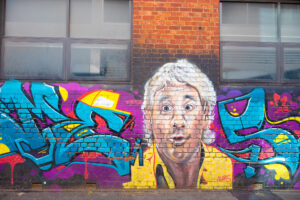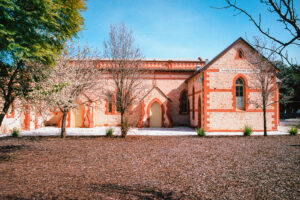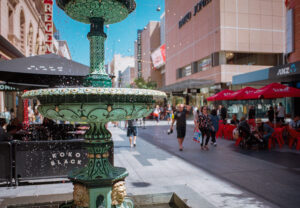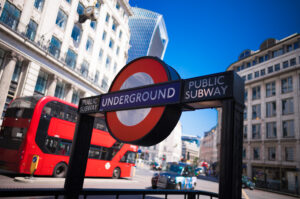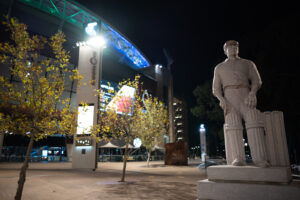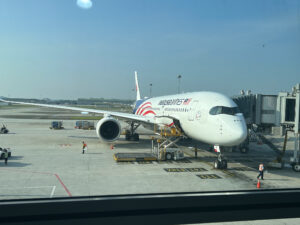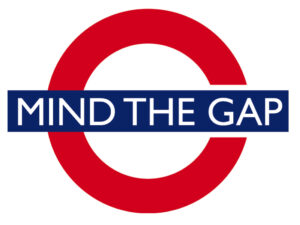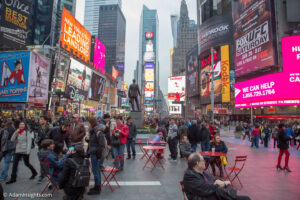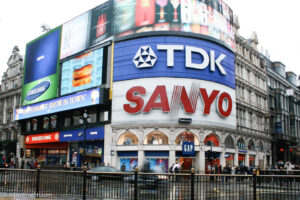I chose this angle for my photo of Winston Churchill to convey the powerful, protectionist reassuring watchfulness of Churchill’s leadership over Britain. I like the way he is there, overlooking Parliament house.
A remarkable statesman, a visionary leader, and an unwavering champion of freedom, Churchill’s indomitable spirit and relentless determination guided the British people through their darkest hours.
Churchill had a hand in his own Statue
In the 1950s, the ambitious plans for the redevelopment of Parliament Square were presented to Winston Churchill by David Eccles, the Minister of Works at the time. With an air of certainty, Churchill pointed to the northeast corner of the square and declared, “That is where my statue will go.” It was a visionary proclamation that would eventually come to fruition.
The idea for the statue was first suggested by John Tilney, a Member of Parliament for Liverpool Wavertree, who raised the topic in a parliamentary question in 1968. The Winston Churchill Statue Appeal was formed, with esteemed individuals such as Edward Heath, Lord Mountbatten, Lord Portal, and Baroness Elliot among its sponsors. The initial cost estimate for the statue stood at £30,000, which was to be raised through donations.
Through the collective efforts of 4,500 individuals, the sum of £32,000 was raised for the statue. Their names were proudly inscribed in a book that found its place in the library at Chartwell, Churchill’s beloved home, on his birthday, November 30, 1973. The statue itself was meticulously crafted by the skilled artisans at the Meridian Foundry in Peckham Rye, London.
On November 1, 1973, a momentous day arrived as the statue was unveiled by Clementine, Baroness Spencer-Churchill, the widow of Winston Churchill. Queen Elizabeth II, though present at the ceremony, graciously declined the honor of unveiling the statue herself, believing it to be more fitting for Lady Spencer-Churchill to perform the task. In her speech, Queen Elizabeth II highlighted how Churchill had turned down a dukedom, choosing instead to spend his remaining years in the House of Commons. The occasion was graced by the presence of The Queen Mother, multiple generations of the Churchill family, Prime Minister Edward Heath, and four former Prime Ministers. The Band of the Royal Marines paid tribute to Churchill by playing several of his favorite musical pieces.
The significance of the statue was further recognized in 2008 when it was granted Grade II listed status, acknowledging its historical and cultural importance. Notably, the statue was also featured in an animated film short titled “Happy and Glorious,” which premiered at the opening ceremony of the 2012 Summer Olympics, capturing the spirit of Churchill’s legacy for a global audience.
In the face of challenges and controversies, the statue of Winston Churchill continues to stand tall, representing the unwavering spirit and indomitable character of a man who led his nation through the dark times of war. It serves as a powerful reminder of Churchill’s legacy, inspiring generations to embrace courage, resilience.
Winston Churchill: The Indomitable Lion of Britain
The Call to Leadership
Churchill’s ascendance to power was no coincidence; it was the culmination of a lifetime of dedication and unwavering commitment to his country. In May 1940, as the dark clouds of Nazi aggression loomed large over Europe, Britain found itself on the precipice of despair. Amidst this perilous situation, Churchill stepped forward to lead the nation, facing immense challenges with unyielding courage.
Unyielding Resolve in the Face of Adversity
Throughout World War II, Churchill stood as the unwavering beacon of hope for the British people. His stirring speeches, resounding with unwavering determination, rallied the nation, infusing them with the strength to withstand the relentless assault of the enemy. In the face of seemingly insurmountable odds, Churchill’s unyielding resolve and refusal to surrender painted him as a symbol of defiance against tyranny.
The Battle of Britain
One of Churchill’s most significant contributions during World War II was his unwavering support of the Royal Air Force (RAF) during the Battle of Britain. As the German Luftwaffe relentlessly bombarded British cities, Churchill displayed remarkable foresight and tenacity in bolstering the RAF’s defenses. His steadfast belief in the power of air superiority, coupled with his relentless efforts to mobilize resources and motivate pilots, ultimately led to a hard-fought victory against the Luftwaffe. Churchill’s inspiring leadership during this pivotal battle proved instrumental in preserving Britain’s freedom.
The Blitz and the Spirit of Resilience
The Blitz, a relentless bombing campaign by the German Luftwaffe against British cities, brought untold suffering and devastation to the people. However, under Churchill’s guidance, the indomitable spirit of the British people emerged as a testament to their resilience. Churchill, through his unwavering presence and impassioned speeches, galvanized the nation, urging them to stand firm against the onslaught. His iconic words, “We shall never surrender,” resonated deep within the hearts of the British people, fostering a spirit of unity and resolve that would endure till victory was won.
Churchill’s masterful diplomacy played a crucial role in forging and maintaining the Allied coalition. Recognizing the importance of international alliances, he deftly navigated the complex political landscape, fostering a spirit of unity among the Allied powers. His unwavering determination and persuasive diplomacy brought together diverse nations, ensuring a united front against the Axis powers. It was Churchill’s indomitable spirit and his ability to forge alliances that helped turn the tide of war. Winston Churchill’s indelible mark on history as a wartime leader and one of the greatest Britons cannot be overstated. He exemplified courage in the face of adversity, inspired hope where there was despair, and led with unwavering determination. Through his relentless efforts, he united the British people, steering them through the treacherous waters of World War II and ultimately securing victory. Winston Churchill’s legacy serves as a reminder that in the darkest of times, great leaders emerge, their actions forever etched in the tapestry of human history.


